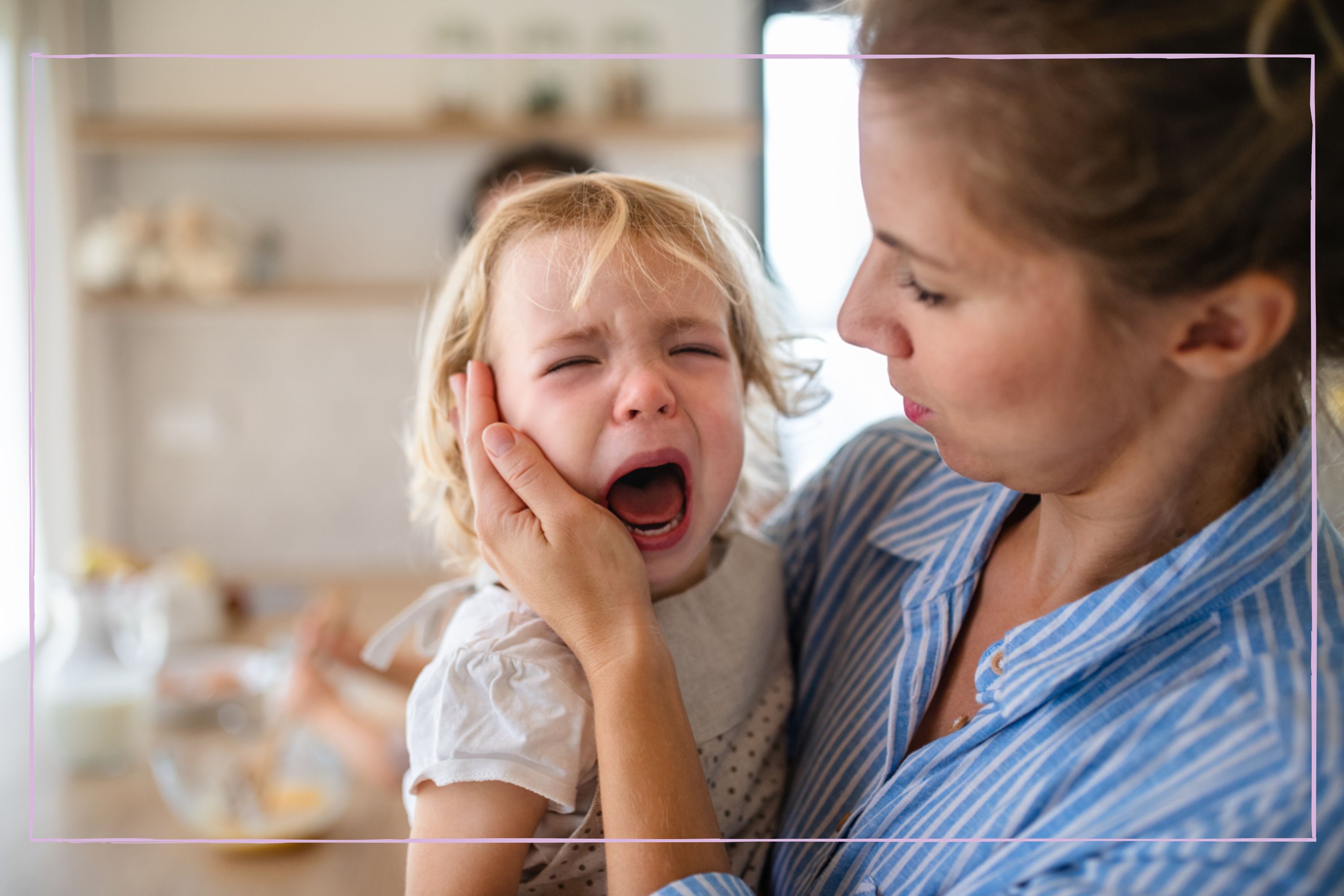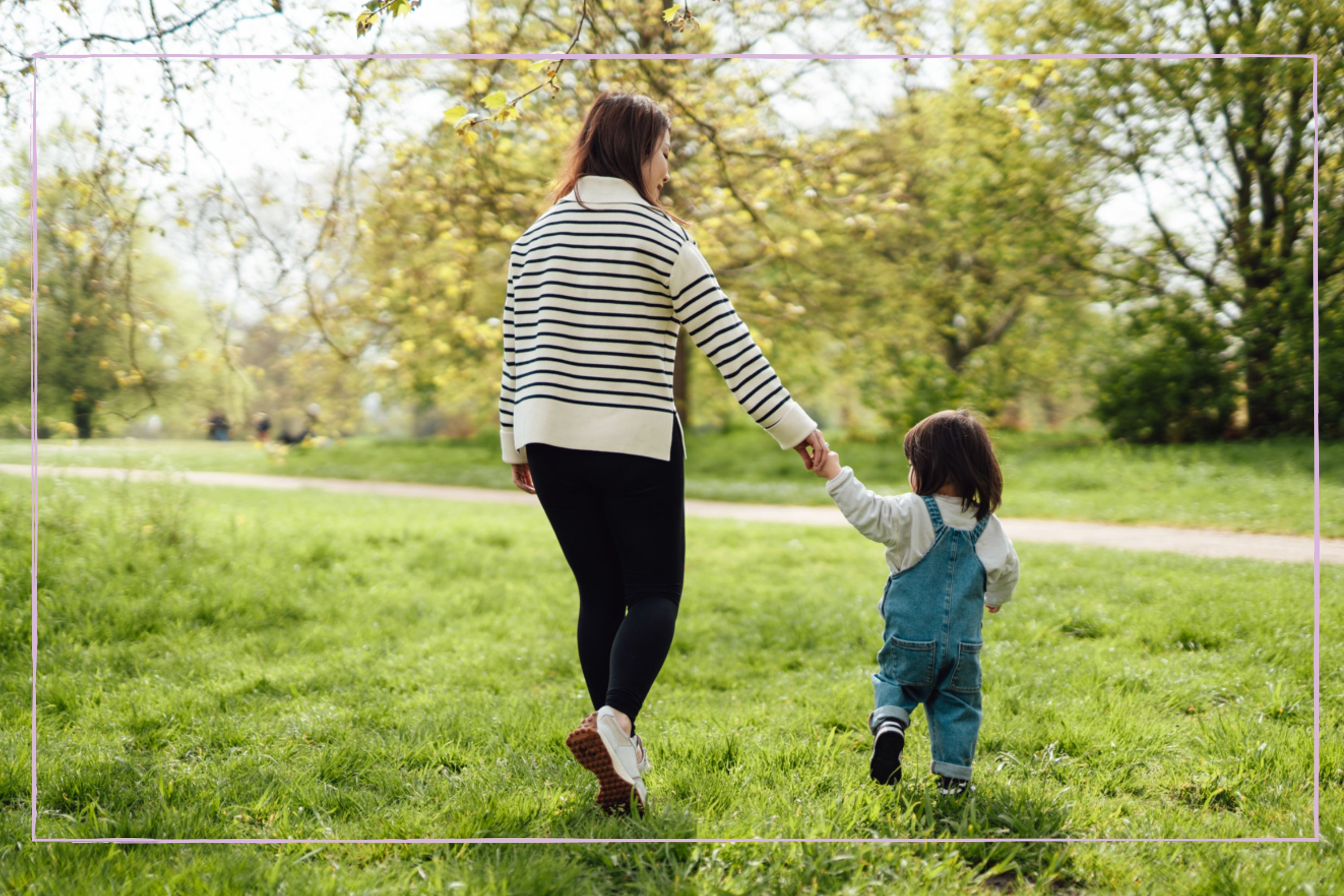Parents, do you know what H.E.L.P. stands for? Psychologists swear by this acronym to navigate those tough parenting moments we all face
Remember: Halt, Empathy, Limits, Proximity...


Remembering this acronym can navigate tough moments with kids of any age, according to psychologists. We explain how you can try it yourself...
Raising kids is one of the hardest things any person can do. Just when you think you've got your parenting style figured out and are in the swing of family life, your little one hits a new child development stage and you feel like you're back at square one. When emotions are high, it's normal for kids to have a 'meltdown' (in fact, tantrums can be healthy), but that doesn't make it any easier for the parents to deal with.
That's why we're always on the hunt for expert-led tips and guidance that can help families navigate difficult moments. Parenting experts and registered psychologists Tania Johnson and Tammy Schamuhn recently shared their expert advice with CNBC - and it's so easy to remember.
They say that their acronym, H.E.L.P., can guide parents when it comes to navigating difficult moments with kids of any age. It stands for Halt, Empathy, Limits and Proximity - and here's how you can use it yourself.
H is for Halt
Children often convey their struggles through misbehaviour or meltdowns, and deal with discomfort and stress through tantrums and crying. It can feel really hard to ignore the 'instant reaction' a tantrum can cause, and while it's easier said than done, before you react to their behaviour, try to stop and ask yourself why they might be acting this way.
The experts explain, "Self-awareness can save us from falling into old patterns we adopted from our own family of origin and allow us to act from a place of compassion and intention." As a parent, try to see through the behaviour and get to the heart of the issue.
They add that, particularly with older children, you could take an entire day or sleep on it while 'halting', before moving on to E, L, and P.
GoodtoKnow Newsletter
Parenting advice, hot topics, best buys and family finance tips delivered straight to your inbox.
E is for Empathy
This step is all about making sure your children feel safe, seen, and heard. Tammy and Tania suggest some of the steps you can take to show your child you believe them when they tell you how they feel:
- Welcome their feelings. Lean in, get on their level, and make eye contact.
- Acknowledge and validate their feelings. With a soft tone, say, “I can see you’re feeling so …” “You must be feeling so …” or “You’re so ____ with me right now.”
- Really listen. Summarise and/or paraphrase (e.g., “So what I’m hearing you say is your friends ignored you all day, and you felt really lonely”) and clarify if needed (“So no one talked to you at lunch and you felt really sad, am I understanding you correctly?”).
- Don’t judge. Feelings are neither good nor bad. And while behaviour may not be acceptable, our children’s feelings always are.
- Don’t try to fix it. Allow for the crying, screaming, or verbal unloading. It’s about our children being seen and heard, not fixing the behaviour or problem.
- Say less. Talking too much overwhelms kids. This is more about our presence.
- Regulate your own emotions. Breathe and take a moment, or several, to compose and ground yourself. Ask yourself if your reaction is about you or your child.
L is for Limits
When your child is exhibiting big emotions, draw boundaries, create structure, and teach more appropriate behaviour. You can do this by first validating the emotion, then conveying that the behaviour was not acceptable and offering alternatives.
Remember that boundaries focus on your own behaviour and what you will or will not tolerate, not what you expect the child to do. If you're still unsure, in a separate article a psychotherapist has explained what setting a boundary with your kids really sounds like.
Tania and Tammy give an example for a child who gets agitated at the dinner table: "I can see you’re so frustrated right now, you don’t want to eat your dinner. But you may not throw things when you’re upset. You may tell us that you’re frustrated or take a quick walk and come back."
P is for Proximity
You might be tempted to walk away because you’re overwhelmed by your child's big emotions or because you don't want to indulge them. However, Tammy and Tania say, "To help calm our children, we need to stay close."
They add, "Look for the moment when their anger or frustration shifts into sadness. This is the golden moment of connection we don’t want to miss. It’s the key to children learning they can be vulnerable and show their authentic self."
If it is too hard and you do need to step away then that's ok - explain to them that you need 30 seconds to breathe on your own and that you'll come back. Never underestimate the power a parent's physical presence holds when it comes to self-regulating emotions.
In other family news, this is why your teenager thinks you don't understand them (and how to deal with it) and a child psychotherapist has revealed why toddlers hit their parents. Elsewhere, here's how you can help your child develop gratitude as they grow.

Ellie is GoodtoKnow’s Family News Editor and covers all the latest trends in the parenting world - from relationship advice and baby names to wellbeing and self-care ideas for busy mums. Ellie is also an NCTJ-qualified journalist and has a distinction in MA Magazine Journalism from Nottingham Trent University and a first-class degree in Journalism from Cardiff University. Previously, Ellie has worked with BBC Good Food, The Big Issue, and the Nottingham Post, as well as freelancing as an arts and entertainment writer alongside her studies. When she’s not got her nose in a book, you’ll probably find Ellie jogging around her local park, indulging in an insta-worthy restaurant, or watching Netflix’s newest true crime documentary.
-
 The 'incredibly helpful' 30-second rule – liked by nearly 2 million people – that your kid needs to know about
The 'incredibly helpful' 30-second rule – liked by nearly 2 million people – that your kid needs to know aboutThis useful piece of advice is worth remembering for all of us, not just our children
By Adam England Published
-
 What is ‘sturdy parenting’? Child psychologist Dr Becky explains the benefits of this technique
What is ‘sturdy parenting’? Child psychologist Dr Becky explains the benefits of this techniqueIf you're at a loss when it comes to disciplining your kids, sturdy parenting might help - and it's approved by child psychologist Dr Becky.
By Ellie Hutchings Published
-
 3 tips to set screen time boundaries from parenting experts Dr Becky Kennedy and Professor Emily Oster - and #1 is an important reminder
3 tips to set screen time boundaries from parenting experts Dr Becky Kennedy and Professor Emily Oster - and #1 is an important reminderStruggling to set screen time boundaries with your kids? Parenting experts Dr Becky Kennedy and Professor Emily Oster have shared three top tips.
By Ellie Hutchings Published
-
 Could 'lazy parenting' be the next big thing? 2 psychologists share why it can be beneficial for development, but not everyone agrees
Could 'lazy parenting' be the next big thing? 2 psychologists share why it can be beneficial for development, but not everyone agrees'We need more lazy parents' and here's why, according to two child psychologists
By Ellie Hutchings Published
-
 Sticker charts 'don't work in the long run' says psychotherapist - try these 8 tips to teach kids intrinsic motivation instead
Sticker charts 'don't work in the long run' says psychotherapist - try these 8 tips to teach kids intrinsic motivation insteadOne expert has explained eight things you can do as a parent to help your child develop intrinsic motivation - and it means abandoning the sticker chart.
By Ellie Hutchings Published
-
 Reflective parenting could help your teenager manage their big emotions, new research shows - here are 5 steps to try
Reflective parenting could help your teenager manage their big emotions, new research shows - here are 5 steps to tryThe teenage years are tough for everyone involved. But research has suggested that an approach known as 'reflective parenting' can be the key to reconnecting.
By Ellie Hutchings Published
-
 These 5 'game changing' phrases can teach your children about the mental load, according to a psychologist - and it could set them in good stead for adulthood
These 5 'game changing' phrases can teach your children about the mental load, according to a psychologist - and it could set them in good stead for adulthood"Change at home can change society"
By Ellie Hutchings Published
-
 'You can quit... but not today' - the game-changing words to use when your kid wants to give up a sport, according to an Olympic gold medallist
'You can quit... but not today' - the game-changing words to use when your kid wants to give up a sport, according to an Olympic gold medallistOlympic gymnast Nastia Liukin has shared the words her parents told her whenever she wanted to quit - and you can use them too.
By Ellie Hutchings Published